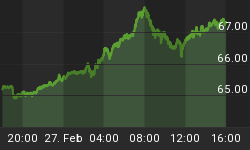Why Read: This commentary links to the International Monetary Fund's 2012 World Economic Outlook. You ought to read the Executive Summary, even if you elect not to scan the entire document or listen to the 45 minute transcript of a related Press Briefing.
The International Monetary Fund has just released its 2012 World Economic Outlook, sub-titled 'Growth Resuming, Dangers Remain'. At a high level, this IMF Outlook suggests:
- "global prospects are gradually strengthening, but downside risks remain elevated";
- major advanced economies will likely resume weak recovery;
- emerging and developing economies are likely to sustain relatively "solid" activity;
- overall, "recent improvements are very fragile";
- the Eurozone is expected to go into mild recession in 2012;
- "downside risks continue to loom large";
- the immediate concern is that an escalation of the Eurozone "crisis will trigger a much more generalized flight from risk";
- "geopolitical uncertainty could trigger a sharp increase in oil prices"; and,
- "austerity alone cannot treat the economic malaise in the major advanced economies" - "resources from stronger peers" (read reallocation of wealth in the developed countries from the wealthy to the less wealthy) must be part of overall country policies.
While I don't disagree with any of the foregoing, these statements largely fall into the 'platitudes' category. Of critical importance, the last point is particularly disconcerting for the following reasons:
- austerity measures will have to be forced on unreceptive developed country populations. Inklings of this are already apparent in events that have unfolded in Greece, Spain and the United Kingdom to name but three countries;
- reallocation of wealth will be met with serious resistance, particularly in the highly politically polarized United States;
- all this will unfold over a far longer period of time than it should, which will do nothing but exacerbate the current economic problems in the developed countries; and,
- almost certainly, a further financial crisis will have to be the trigger that actually results in timely and strong actions being taken. Unfortunately, by then 'the lights might be turned out at the ball field'.
After all, why would anyone believe the very politicians and other 'stage players' who have contributed to the current developed country economic malaise and contagion risks are 'ready and able' to reverse course unless forced to do this by external factors that will see them harmed if they don't.
It would be wonderful to have a 'magic wand' that could be waved over the developed countries economies (read America and the Eurozone). Unfortunately, the IMF doesn't have such a 'magic wand', nor does anyone else.
Finally, the IMF concept is fundamentally flawed. The IMF is a 'created agency' that funnels funds from participating countries to 'countries in economic need'. The IMF does not have subsequent control over how that money is spent by the recipients, nor do the countries that donated the money through the IMF - see statement by former IMF President Dominique Strausss-Kahn, who in October, 2012 is quoted as having said:
"We cannot oblige a country to do something, but what we can do is to notice that a country has a commitment and fulfills, or not, a commitment."
Without being negative to Madame Lagarde and her IMF colleagues, who to a person I assume are well intentioned, non-control of contributed funds is a almost certainly a recipe for disaster where those funds are contributed to the every people who 'managed their way' into financial difficulty in the first place.
World Economic Outlook, April 2012
Source: International Monetary Fund, April 2012
Reading time: Executive Summary 8 minutes, entire report, one or morehours















